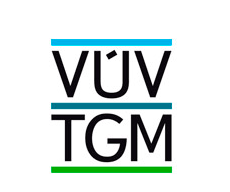Current Topics
This section provides information on topics related to the research activities of the institute.
SARS-CoV-2 in wastewater
Surveillance of SARS-CoV-2 occurrence in the wastewater in the Czech Republic
Epidemiologic approach to the monitoring of wastewater (inflow to the wastewater treatment plant - WWTP) can be used for surveillance of SARS-CoV-2 occurrence in the population. There is a very extensive network of WWTPs in the Czech Republic, the total number of them is 3166. About 80 % of residents of the Czech Republic are connected to the WWTPs; free outflows of untreated wastewater to the recipient from about 20 % of inhabitants can present an epidemiologic risk.
Monitoring of SARS-CoV-2 in the wastewater started in T. G. Masaryk Water Research Institute, p. r. i., in the half of April 2020. Determination of viruses is realised in collaboration with Veterinary research institute, p. r. i., wastewater sampling is provided by operators of WWTP.
We cooperate with about 20 WWTPs at this time, most of them with capacity 10 000 to 100 000 inhabitant equivalent (IE), some of them are smaller, with capacity under 10 000 IE, one WWTP has capacity more than 100 000 IE. These WWTPs together serve more than 760 000 residents. Inhabitant equivalent is the number expressing the ratio of the sum of the pollution load produced during 24 hours by industrial facilities and services to the individual pollution load in household sewage produced by one person at the same time.
Samples from 20 localities were analysed in the first monitoring phase, in six of them were detected presence of specific gene segments of SARS-CoV-2 , i.e. 30 % of the monitored WWTP. The presence of other groups of health-related viruses (noroviruses and adenoviruses) were also identified. These viruses were also found in treated wastewater. The results show that applied RT-qPCR method is sufficiently reliable and sensitive for this purpose.
Preliminary results show that the chosen approach focused on detection of SARS-CoV-2 in wastewater samples is suitable for the purpose of surveillance of SARS-CoV-2 occurrence in the population.
Small percentage of infected persons in monitored localities can be a reason for relatively low capture of positive findings. Gastrointestinal symptoms of COVID-19 connected with viral particles excretion in faeces are manifested only in 2–50 % cases, this can be the additional factor which influences the detection of virus segments of nucleic acids in wastewater samples.
Wastewater surveillance can account for those who have not been tested yet and have only mild or no symptoms, however, excretion of virus particles of these persons is not sufficiently studied at this time.
T. G. Masaryk Water Research Institute, p. r. i., participates in SARS-CoV-2 in wastewater international collaborative study under umbrella of the NORMAN network, network of reference laboratories, research centres and related organizations for the monitoring and biomonitoring of emerging environmental substances and of the research team from KWR Water Research Institute, Netherlands. The aim is to develop and implement a common sampling and analysis protocol for determination of SARS-Cov-2 in wastewater.
Our next research will be focused on optimization of methodological procedure steps and searching for detection limit of this method for wastewater monitoring focused on infectious agent determination. Routine wastewater surveillance could be used as a non-invasive early-warning tool to alert communities not only to new COVID-19 infections but also to other ones.
Prague, May 12, 2020





